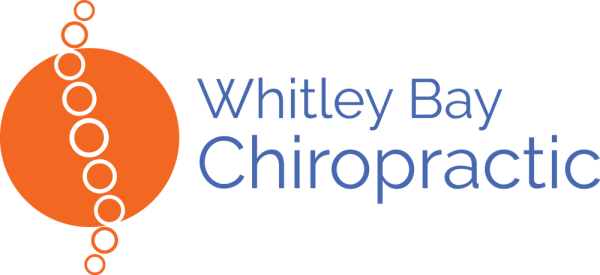Active Release Techniques (ART) Press Articles and Research

ART articles!
Telegraph The ART of Active Release Techniques for Injuries
STACK New Age of Golf Training is Creating Stronger and More Athletic Golfers
Athletics Weekly Performance Therapy for Greg Rutherford
220 Triathlon ART- How is it different from sports massage
Vigour Magazine ART can release tight muscles to improve performance
Progenex ART for CrossFitters
FIT Institute Research based hamstring therapies
TPI What Performance Therapy Looks Like For Top Golfers
More ART articles
Austin Fitness Magazine Q and A on ART
Health & Fit Magazine Address Soft Tissue Problems to Help Heal Your Body
Scifighting ART for MMA Fighters
Athletes Acceleration ART: neuromuscular efficiency / stability / mobility
Running Competitor Injury Prevention is an ART
Nations Tri ART- Your New Secret Weapon
Bobdybuilding.com “I’ve written about the value of ART many times. I’ve seen it clear up a number of nagging injuries in a single session. It can restore function, reduce (and even eliminate) pain, significantly improve flexibility (i.e. range of motion) and strength in just one session.” John Paul Catanzaro
Product of Running My Experience with ART
Bryan Kelly “USA’s Top Hip Surgeon” on why he uses ART
“Hip injuries occur in the hip joint but often times result in secondary muscular injuries over time ( i.e. flexor tendonitis, trochanteric bursitis, lower back pain, hamstring pulls). ART has been very successful in decreasing pain associated to these muscular injuries. We have found that patients do much better post operatively if the muscular pathology is addressed prior to surgery.”
Teemu Selanne NHL ice hockey legend
“ART has been huge for me. Unbelievable. Seriously, it’s the most important reason why my muscles are in such great shape. I go twice a week (in Anaheim) and go here when I’m on the road. And I hope the young guys will realize how important this is, but they’re younger and don’t get it – but they will. The older we get, the toughest challenge is recovery time. You have to be very disciplined with that and your diet and ART.” ART has been Teemu Selanne’s MVP (link inactive)
Matt Connery Senior Physiotherapist Everton FC
“ART is a superb soft-tissue, diagnostic, and treatment modality which has shown time and time again to be effective in both the elite sport setting and general MSK therapy.”
Wayne Diesel Head of medical services Tottenham FC
“ART challenges you as a practitioner to have exceptional knowledge of functional anatomy. It allows more specificity which I have found particularly useful for spinal issues, being able to target individual multifidi. I would recommend ART for its ability to treat specific issues as part of your regular treatment regimen, this can at times reduce of overall treatment times. In an elite sports environment, having several therapists all trained in ART is a tremendous help in continuity of treatment.”
Active Release Techniques (ART) and Myofascial Release (MR) Research
ART is a hands-on soft tissue treatment of ligaments, muscles, tendons, and nerves. It is the market leading soft tissue therapy in the world, used by 17000 health care providers around the world. The technique involves a practitioner applying tension to a muscle with his/her hands, the patient then moves to pull the muscle out from under the contact.
Researchers found ART to be effective with:
Tennis Elbow
Harneet- Efficacy of ART in Tennis Elbow- RCT. 2012
“ART is effective in reducing (Tennis Elbow) pain, improving strength and functional performance.“
Trivedi- Comparison of ART and MR on Pain, Grip Strength, & Functional Performance in Patients with Chronic Lateral Epicondylitis. 2014
“ART and MR were effective in all three outcome measures when compared to a control group. MR was more effective in improving grip strength & reducing pain & disability when compared to ART. “
Hamstring flexibility
Kage- Immediate effect of ART vs Mulligan Bent Leg Raise (MBLR) in subjects with hamstring tightness: RCT 2013
“A single session of ART is better as compared to MBLR technique to improve hamstring flexibility and range of motion.”
Shah, S + Kage, V.- Comparative Effectiveness of ART and Rolfing on hamstring tightness in normal subjects. RCT
“ART showed better improvement as compared to Rolfing in terms of Popliteal angle.”
George, JW- The effects of ART on hamstring flexibility 2006
“This study demonstrated that a single ART treatment increased hamstring flexibility in a group of healthy, active male participants.“
Neck Pain
Kim JW- Effects of the ART on pain and range of motion of patients with chronic neck pain 2015
“ART and joint mobilization are both effective for the treatment of patients with chronic neck pain, but ART demonstrated a trend toward greater effectiveness for patients with neck pain involving soft tissue injury. Therefore, ART appears to be a better option for treating patients with chronic neck pain in the clinical setting.“
Overuse syndromes
Schiottz-Christensen, Mooney- The Role of Active Release Manual Therapy for Upper Extremity Overuse Syndromes—
“Results at one month and three months demonstrated a 71% efficacy rate, which when compared to similar studies in literature was superior. As a result of this study, recommendation of further use of this innovative technique is justified.”
Plantar Fasciitis
Kage, V and Bindra- Effect of ART vs MR on subjects with plantar fasciitis: RCT 2015
“MR and ART both were equally effective in reducing pain and improving the functional ability in subjects with Plantar Fasciitis.“
“MR is more effective than a control intervention for plantar heel pain.”
“MR is an effective therapeutic option in the treatment of plantar fasciitis.”
Gluteus Medius
Tak S.- The effects of active release technique on the gluteus medius for pain relief in persons with chronic low back pain. 2013
“ART may be usable to treat low back pain. ART was presented to reduce pain level of low back in people with chronic low back pain.”
